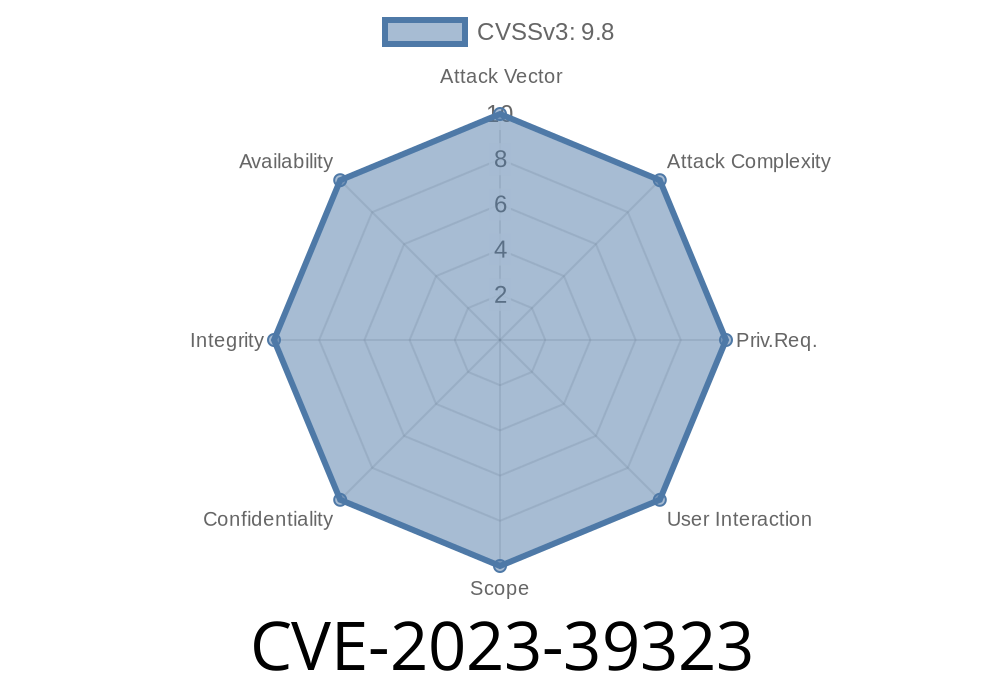In 2023, a serious vulnerability was found in the Go programming language's build process. Known as CVE-2023-39323, this issue allows crafty attackers to use //line directives in Go files to bypass important build safety checks. The vulnerability centers around mixing //line directives with //go:cgo_ comments, which can let a developer (or attacker) sneak in dangerous compiler or linker flags, potentially leading to arbitrary code execution. If you write or build Go code—especially from untrusted sources—understanding this risk is crucial.
Background: Go’s Safety Checks
Go uses special comments, like //go:cgo_ldflag, inside .go files to let programmers set compiler or linker flags when compiling code that calls into C. But, to stop abuse, Go’s build system blocks some flags, restricting what you can do. Still, Go supports another directive—//line—that lets tools rewrite source code while keeping original line and file info for better error and debugging messages.
### The Exploit: Combining //line and //go:cgo_
When a Go file has a //line directive, it tells the compiler to treat the next lines as if they’re from a different file and line number. The vulnerability happens because, under certain circumstances, Go’s build system checks for dangerous //go:cgo_ directives before it actually adjusts for //line. With the right setup, this inconsistency can be abused to get those dangerous flags past Go's restrictions.
What Makes Exploitation Hard
The //line directive must point to an absolute file path, and the actual file referenced must exist on the system running the build. This means the attacker needs to know or control paths on the victim's machine, making exploitation harder—but not impossible, especially in collaborative or CI environments.
Proof-of-Concept Example
Here’s a minimal example of how an abuser could try to sneak -ldflags through using these directives.
Suppose you have a file called exploit.go
package main
//line /tmp/foo.go:1
//go:cgo_ldflag -X=main.evil=owned
import "C"
func main() {}
In this example
- The //line directive fakes the file to /tmp/foo.go, line 1.
- The //go:cgo_ldflag tries to set an internal variable ("evil") at build time.
- If successful, this could overwrite variable values or trigger dangerous behaviors when combined with other techniques.
> Note: In practice, the actual flags and techniques used could be much more dangerous, such as injecting library paths or arbitrary code.
Exploitation Scenario
1. Attacker submits a Go file or pull request with crafted //line and //go:cgo_ lines.
2. Victim builds the code (go build) in a setup where /tmp/foo.go or another absolute path is writable or predictable.
Malicious code runs as part of the build process.
> This exploit is most dangerous in continuous integration (CI) setups or developer environments where files can be written to known paths.
Real-World Risks
- Privileged code injection: Attackers can inject unsafe flags to run arbitrary code during builds.
- Supply chain attacks: If open-source projects use Go modules or pull requests from others, a sneaky file can target their CI pipelines.
Mitigation
Go fixed this vulnerability in versions Go 1.20.12 and Go 1.21.5. Always update to the latest Go version to stay protected.
If you can't upgrade, watch out for .go files containing both //line and //go:cgo_ directives—especially if they point to files outside your repository.
References
- CVE-2023-39323 on NVD
- Go’s Advisory for CVE-2023-39323
- Go Release Notes for 1.20.12
- Go //line and //go:cgo_ldflag documentation
Conclusion
CVE-2023-39323 is a reminder that even “just comments” in code can undermine security in surprising ways. It’s a real-world example of why modern software development—especially in open-source—requires reviewing not just code, but also “hidden” features like comments and file directives. Always use the latest Go version, and never build Go code from untrusted repositories unless you know exactly what’s inside.
Timeline
Published on: 10/05/2023 21:15:11 UTC
Last modified on: 11/25/2023 11:15:17 UTC
